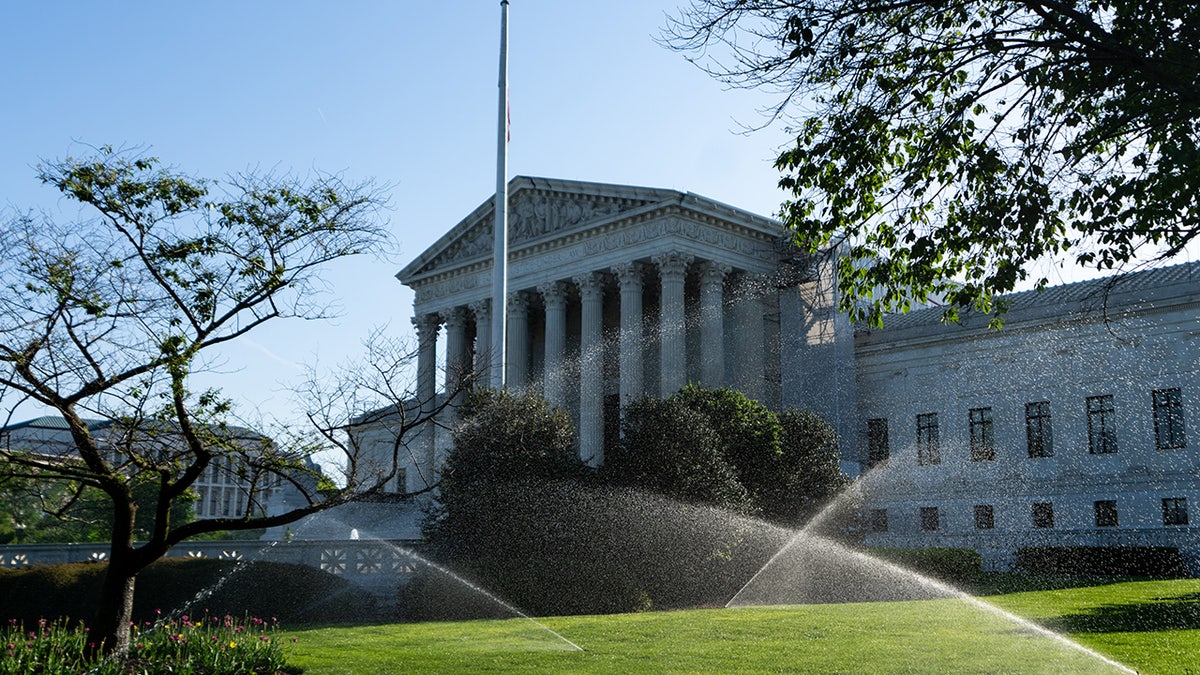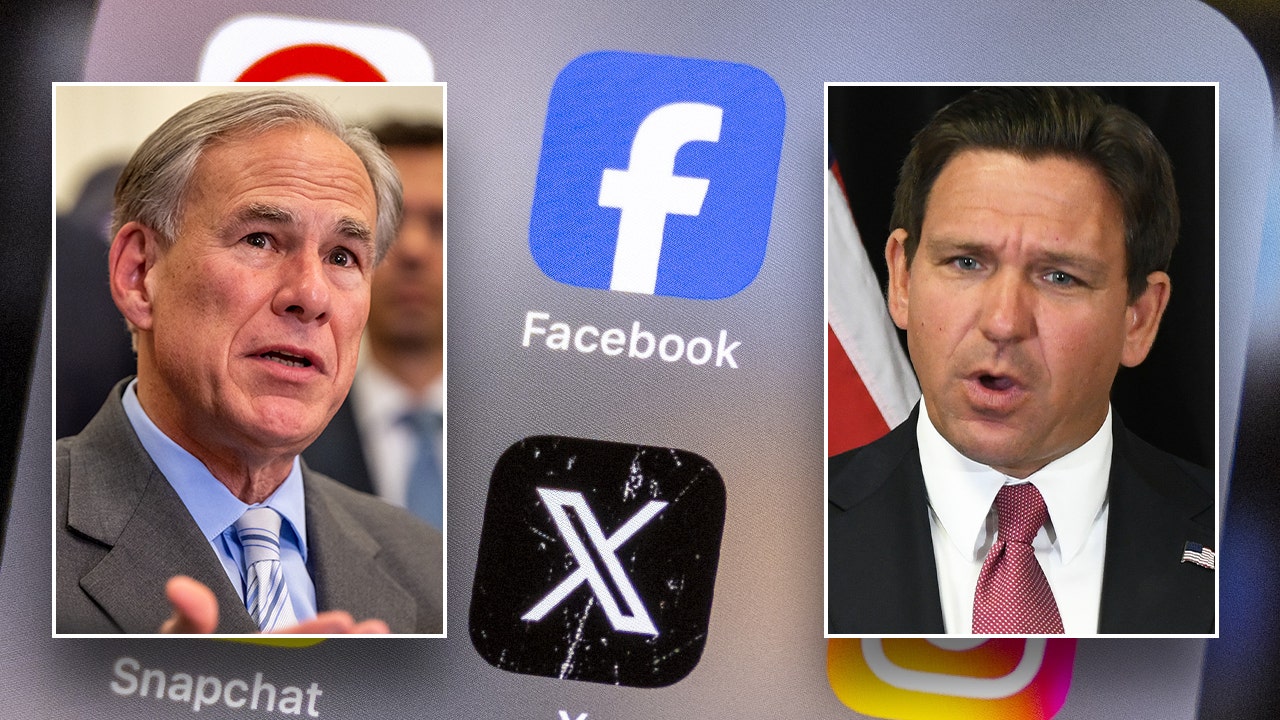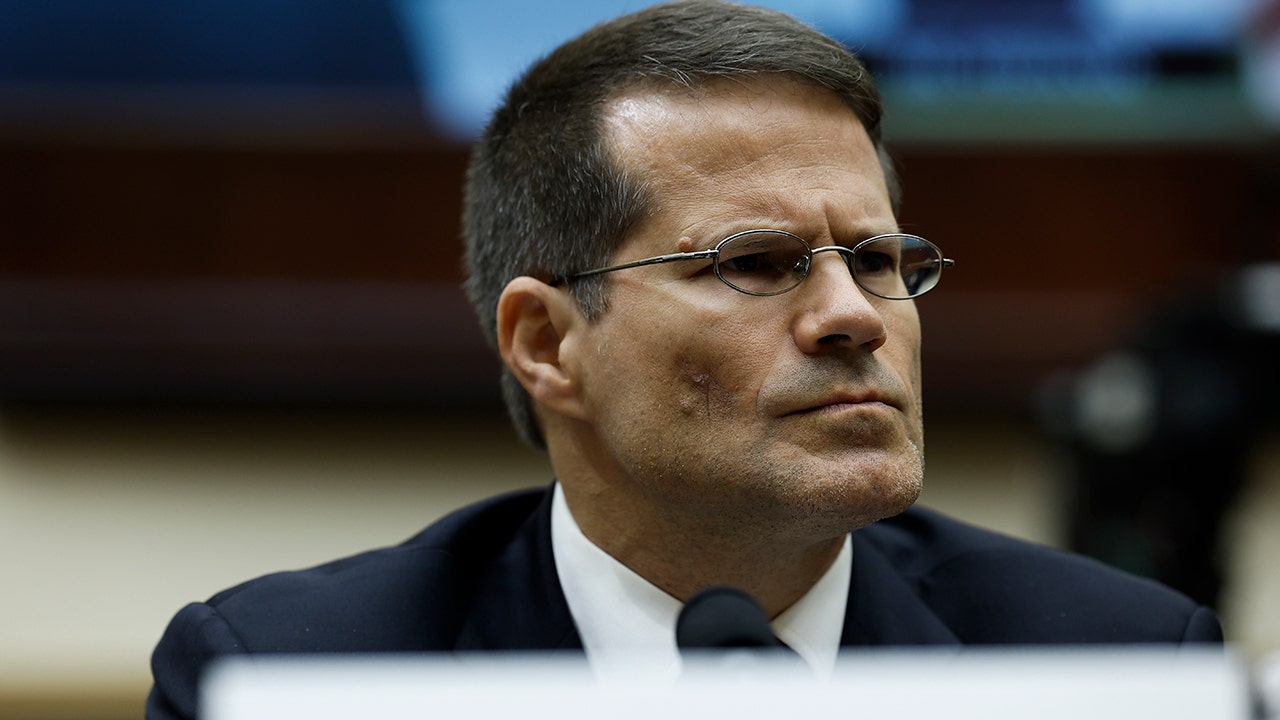The Supreme Court on Monday dismissed challenges to Florida and Texas laws that restrict how large social media companies moderate user content.
Each law would require Big Tech companies like X (formerly Twitter) and Facebook to host third-party communications but prevent those businesses from blocking or removing users’ posts based on political viewpoints.
In a unanimous ruling, the court said lower courts did not properly analyze the First Amendment issues at play in the case. As a result, each case will go back to its respective Circuit Court of Appeals.
GOP SENATOR URGES SCOTUS TO REIN IN BIG TECH’S CONTENT CENSORSHIP THAT DEFIES ‘LOGIC’

Sprinklers water the lawn in front of the U.S. Supreme Court on Monday morning, April 29, 2024. (Getty Images )
In almost four hours of oral arguments in February, the justices weighed whether to offer a sweeping ruling on the First Amendment implications of the state laws, or a more limited approach that might have the lower courts take another look at how those content moderation policies would be applied.
The Florida law blocked a social media platform from engaging in censoring, prioritizing, or so-called “shadow banning” that is “based on the content.” Texas’ law was broader ,
JAN 6 RIOTERS, ABORTION, GUN RIGHTS: A LOOK AHEAD AT LANDMARK CASES SCOTUS WILL HEAR IN 2024

Florida’s social media law blocked a social media platform from engaging in censoring, prioritizing, or so-called “shadow banning” “based on the content.” (Matt Cardy/Getty Images)
It would have also prevented “willfully deplatforming a candidate” for public office for material posted by or about that candidate.
Both Florida and Texas would also require those companies to notify a user when their content has been modified or edited, along with an explanation for that action.
GOP AGS ASK SUPREME COURT TO PEEL BACK CONTENT MODERATION FROM BIG TECH IN LANDMARK FIRST AMENDMENT CASES

Members of the Supreme Court (L-R) Associate Justices Amy Coney Barrett, Neil M. Gorsuch, Sonia Sotomayor, and Clarence Thomas, Chief Justice John G. Roberts, Jr., and Associate Justices Ketanji Brown Jackson, Samuel A. Alito, Jr., Elena Kagan, and Brett M. Kavanaugh pose in the Justices Conference Room prior to the formal investiture ceremony of Associate Justice Ketanji Brown Jackson September 30, 2022 in Washington, D.C. (Collection of the Supreme Court of the United States via Getty Images)
Trade groups representing big tech companies argue that the laws violate their free speech rights to decide what content meets their policies — saying their forums should not be an open-ended portal for offensive or dangerous speech — including school bullying, harassment, terrorist ideology, racial hatred, medical misinformation and voter fraud.
The laws were supported by Republicans in Congress and over a dozen GOP-led states, who filed amicus briefs in the case.
Senator Josh Hawley, R-Mo., said that the platforms wanted to keep liability protections granted by Congress for content on their sites, while simultaneously asking for unfettered ability to censor content, citing their First Amendment liberties.
CLICK HERE TO GET THE FOX NEWS APP
“Despite decades arguing for this position, today the tech platforms take precisely the opposite line. They claim that their content hosting and curation decisions are in fact expressive — expressive enough that they enjoy First Amendment protection,” the lawmaker argued.






